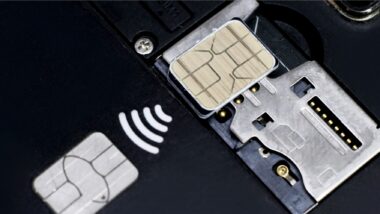Through human history, trust has been a key asset for any transaction or relationship. Before legitimate currency, if you wanted to get a loan or make a deal, you had to rely on your credibility and relationships within the community. At that time, it was mandatory to have a reliable and trusted sponsor and recommendation from them when it came to exchanging goods or credit, and to hold a place of significance within the community. This trust would’ve been created over a long time through the community network. And if you lost the community’s trust, it was very difficult and often expensive to get it back.

In the new digital economy, those same principles are enabling an explosion of new collaboration models. Powerful and successful networks of trusting strangers who share cars and apartments are now commonplace. And behind it all is trust, part of the digital currency that allows strangers to transact.
But what exactly is Trust?
According to the Oxford Dictionary, trust is the firm belief in the reliability, truth, or ability of someone or something. For example: “I trust you because you are reliable.”
The shift we’re now witnessing in the digital economy is a move towards a model which is transparent and based on real accountability. Digital trust is the bridge between the known and the unknown, and technology is the enabler which turns trust into a crucial element of the new economy. There are several successful examples of commercial platforms that leverage reputations as measure of trust to generate revenue, such as UBER, Airbnb, Etsy, eBay and BlaBlacar. To illustrate:
- According to eMarketer, 5 million people will use a sharing economy service at least once in 2017
- New research from Juniper forecasts that the sharing economy will reach $40.2 billion in platform provider revenues by 2022, up from $18.6 billion in 2017
- Airbnb has approximately four million housing units available for rent, in more than 191 countries
- and more than 200 million guests have stayed in Airbnb accommodation somewhere around the world.
Is trust a cornerstone of digital business?

This movement has created a new system where trust is moving beyond traditional enablers. For example, just a few years ago when you arrived at an airport, you would take a taxi according to airport guidelines. Today this is changing; people are calling UBER to pick them at the airport. The traditional model shifted, and the collective is creating a new model of trust.
In this new digital world, the first thing you want to know when interacting with a person or service on the internet is “are they real or not?”. How can I be sure that you are who you claim to be, are that you’re a real person? Human nature looks to probe and discover, and trust gives us a new dimension to digital identities where traditional identification methods doesn’t work.
As traditional chains of trust move away from institutions and into the hands of individuals, grey areas of privacy, identity and risk emerge. Trust becomes a very sensitive digital challenge, and it can be broken. The consequences are largely the same as they were before the digital age, but rather than be limited to just one small community, they are extended to the whole world instead.
Many sharing economy companies are using different technologies to verify user identity. Being able to verify identities means users are more identifiable and accountable online, which is crucial for building trust and reducing risk.
As we know, the sharing economy has existed for several years, but digital platforms are the new middle age communities where reputation based on other people’s recommendations is mandatory for successful transactions. Trust has an enormous value in this new digital economy, and is making possible not only new business models, but person-to-person exchanges.
The shift from in person transactions to digital connections is creating a new dynamic environment which could inspire insecurity and fear. As a result, building trust is a decisive factor for success – and as it grows, it still faces new challenges. Therefore, we need to rethink how the rapid progress of technology is helping to ensure exchanges and facilitate this trust. We mustn’t forget that increased safety and transparency are the most fundamental elements we need to enable and enjoy this new digital era.


